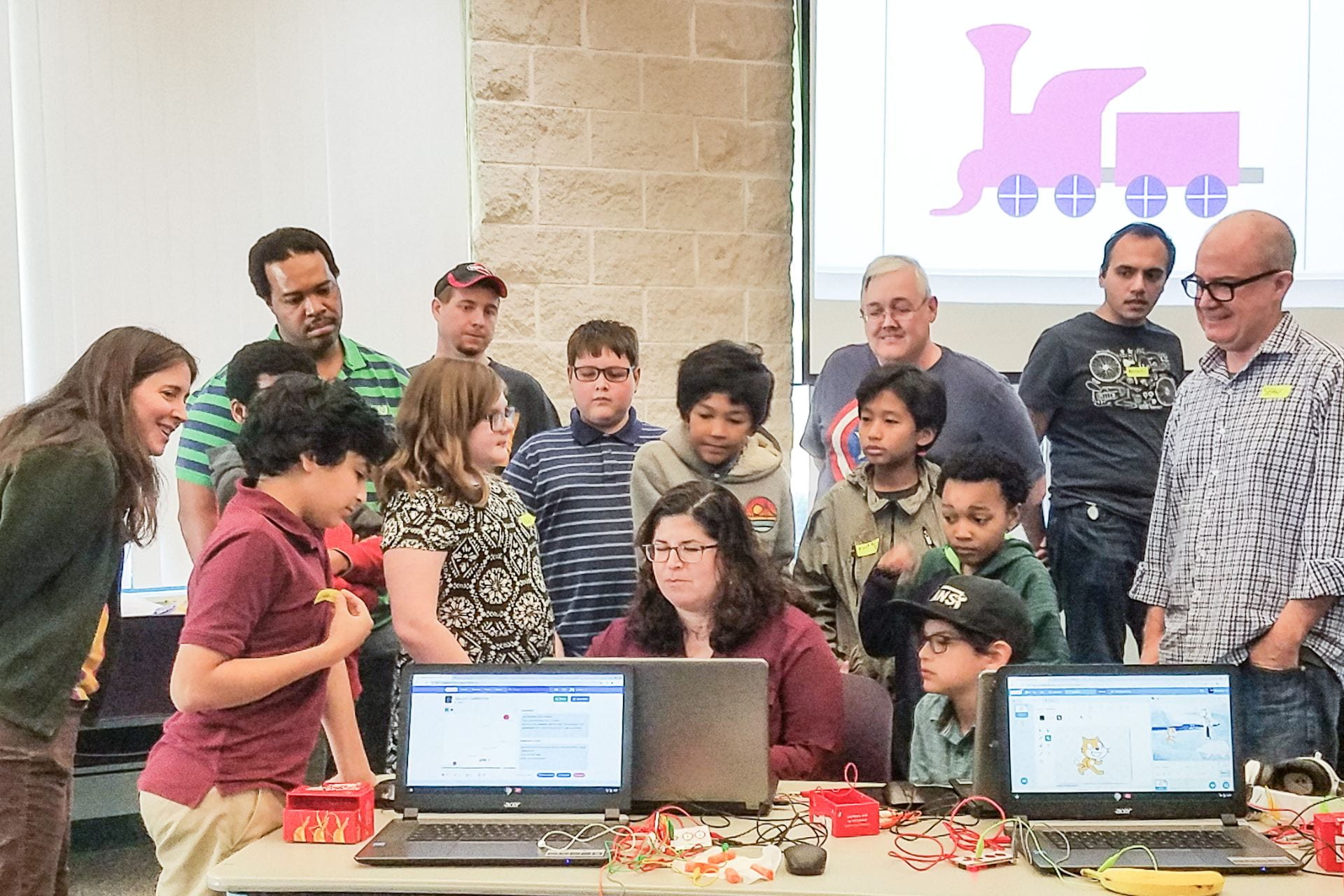
Families Learning Together (FLT) is a community education project that teaches computational thinking through art, storytelling, and citizen science. FLT offers coding workshops (we call them playshops!) and maker clubs at San Marcos elementary schools, the public library, Centro Cultural Hispano de San Marcos, and teacher education workshops at the San Marcos Consolidated Independent School District, and elsewhere.
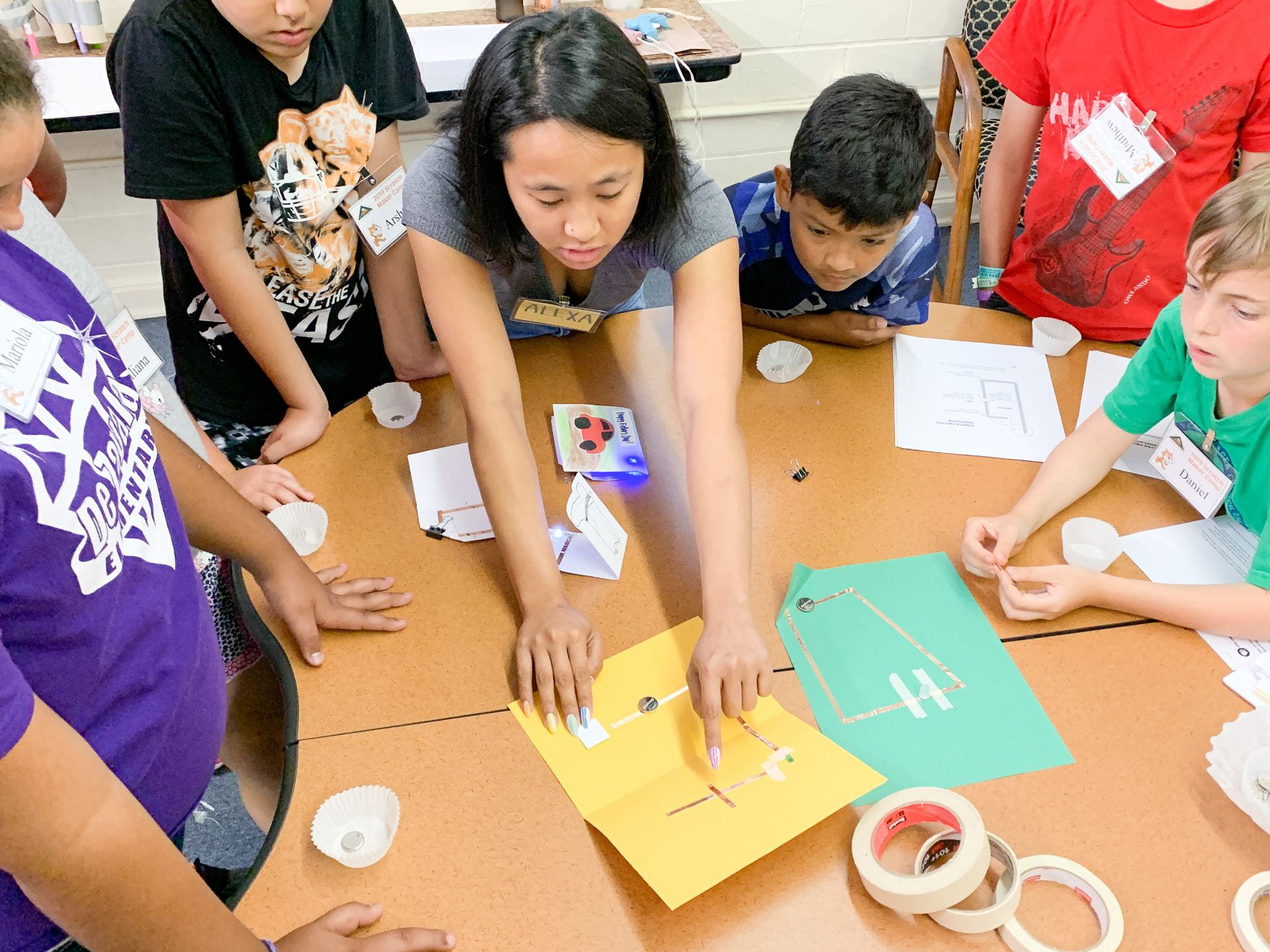
FLT expands creative computing in San Marcos by empowering students, families, and preK to 5 teachers to make meaningful stories, games, and art with computational materials.
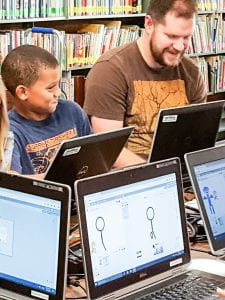
The FLT method is based on shared inquiry and problem-finding. Playshop activities include storytelling, game design, citizen science, and art making. No prior computing experience is necessary to join an FLT playshop, but a sense of curiosity and the desire to learn is essential.
FLT was started in 2016 by Dr. Sean Justice, associate professor of art education in the School of Art & Design at Texas State University. The vision behind FLT came from his work in art and computer science education, and from his experience as an entrepreneur and commercial artist working in photography. Since beginning his career in education, Dr. Justice has focused on helping students of all ages work with computational materials as a meaningful way to make art, tell stories, play games, and do science.
FLT works with Texas State University students who want to teach 21st century creative skills. Together we’re learning to expand individual creativity to better serve our communities.
Since 2016, Texas State University students from education, computer science, history, dance, English, biology, art, and other departments have become playshop teachers. Some are complete novices in computer science themselves, at least at the beginning — but we all learn together! (See the Get Involved page to find out more.)
FLT believes that creative computing is a constructivist mindset that welcomes a wide variety of making and building with different tools and materials. Coding is a great place to start, but there’s a whole lot more. For instance, playshops often begin with Scratch (https://scratch.mit.edu/), a computer programming platform designed for young people at the MIT Media Lab, and then expand outward like ripples on a pond.
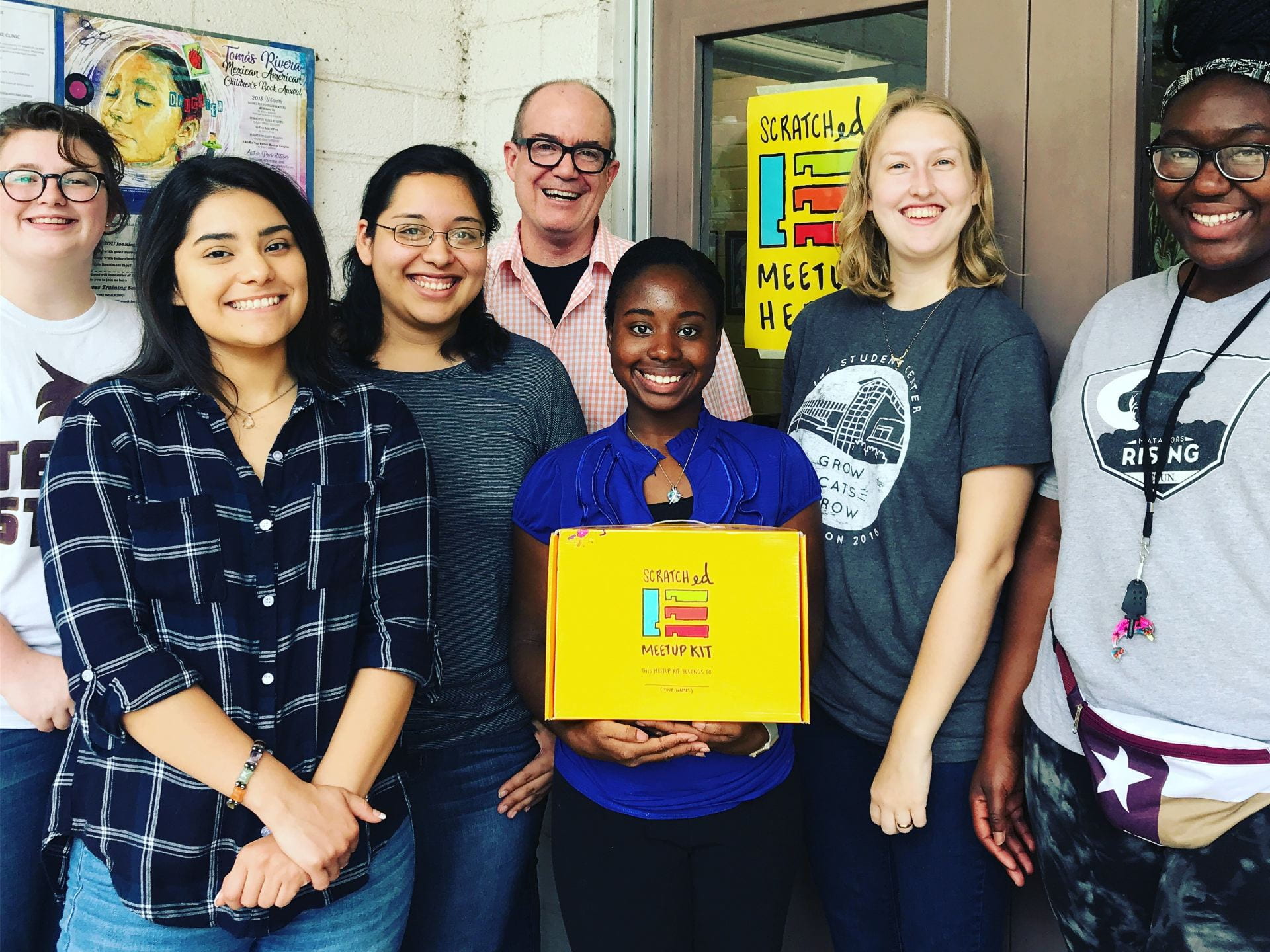
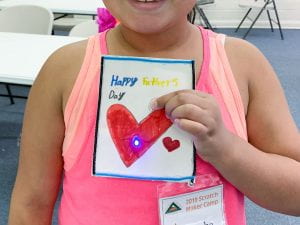
After school programs, summer camps, and online learning clubs participants make drawing machines, robots, augmented reality experiences, pop-up books, and other imaginative things—such as light-up Father’s Day cards! A favorite activity includes craft circuit collages that connect to Scratch animations, known as an interface.
No matter how much experience participants have with computer programming or computational making, even if they have no experience at all, the main criteria for having fun at an FLT playshop is the willingness to jump into the learning alongside other participants, whether elementary school students, college students, parents and grandparents, or teachers.
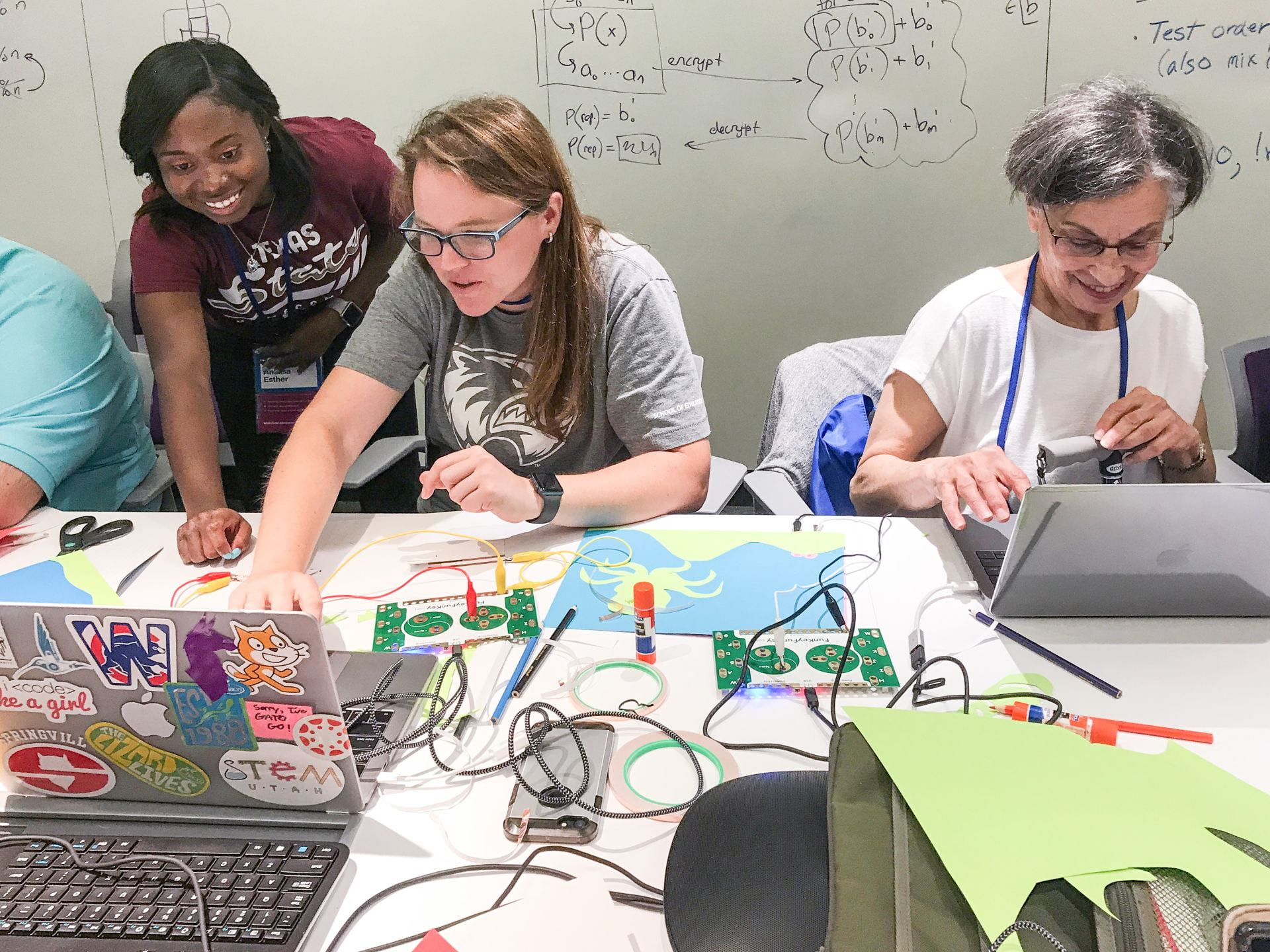
Our Town: San Marcos, Texas
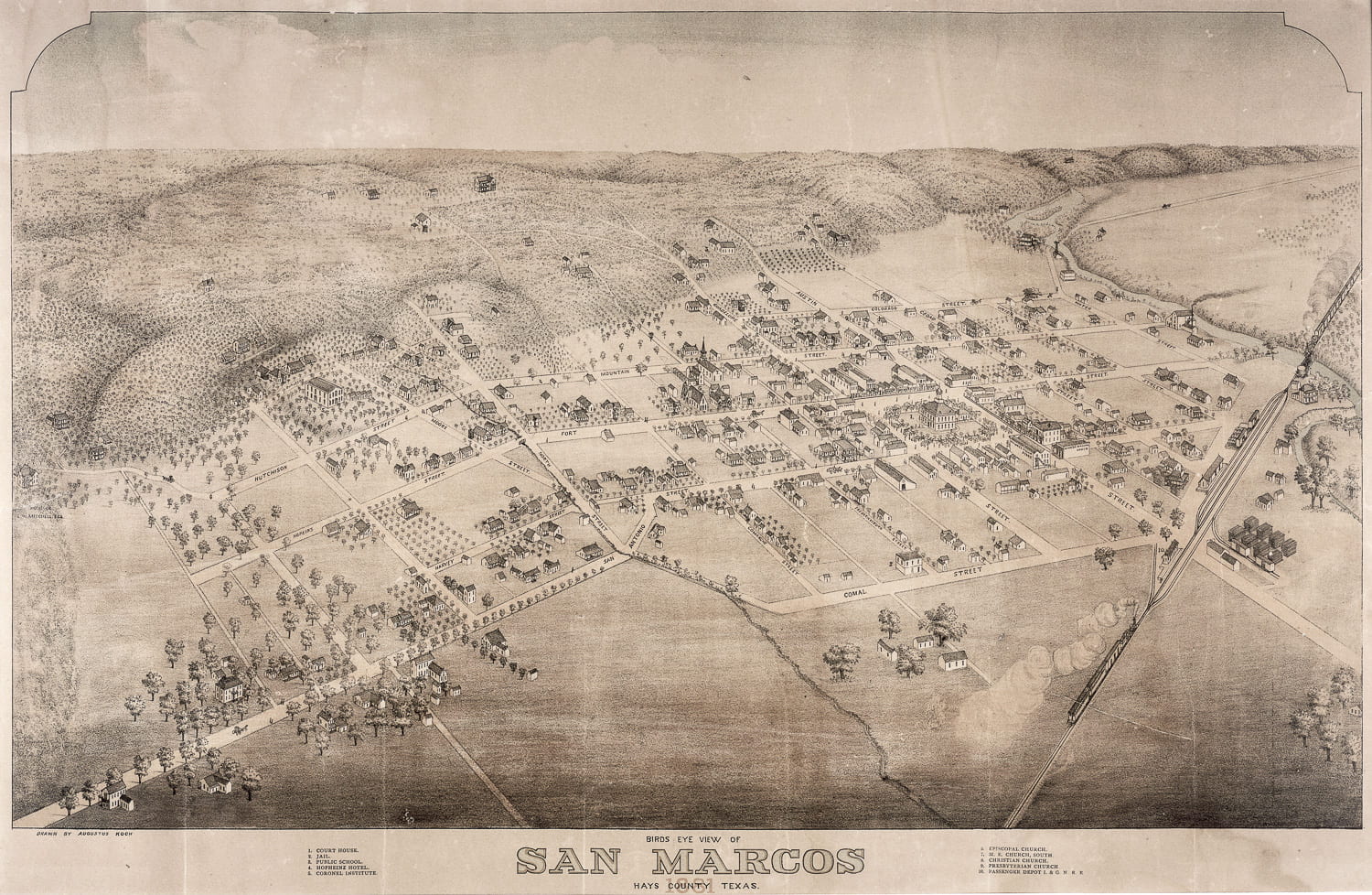
San Marcos traces its history to a system of freshwater springs that have never gone dry, with evidence of habitation stretching back 11,000 years. In the early 1800s, Mexican ranchers and farmers settled in the Central Texas region because of the Camino Real, a network of Spanish wagon routes that crossed Texas from west to east. That same network of trails later brought immigrants westward from the United States, setting the stage for rivers of asphalt like Interstate 35, which runs north from Laredo, Texas, at the Mexican border, through San Antonio, Austin, Dallas, and all the way to Duluth, Minnesota .
Today, the growth in Central Texas casts it as a mega-region, blurring distinctions between urban and rural communities as the Interstate has shifted from Main Street to high speed by-pass. In fact, however, in the eyes of municipal and corporate planners, San Marcos is barely distinguishable from Austin or other communities in the metro area.
This history of cultural ebb and flow informs the design of FLT’s playshops. To increase participation for the whole community FLT invites families, students, and teachers to explore the cultural relevance of their stories, games, art, and science. As we tell stories and make art together with computational tools and materials, acquiring computational thinking skills and practices in the process, this grounding in our shared history connects our learning to self-efficacy and helps build a healthy community.
